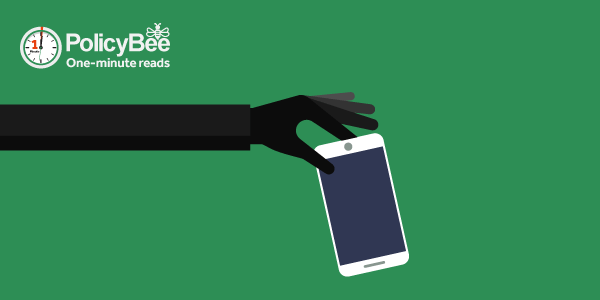
Light fingers can be lightning quick in relieving you of your possessions. One brief lapse of attention and poof...they're gone.
If you’re unlucky enough to fall victim to thieves, and you have your work laptop, phone, camera, or something else stolen while you’re out and about, you’ll want to claim for a new one asap.
That's presuming you've been sensible enough to cover your kit with portable equipment insurance, of course. If you have, it's at this point that your insurer or broker will ask you for two influential bits of info:
1. ‘Where was it (the thing)?’
and
2. ‘Where were you (in relation to the thing)?’
They’re after reassurance you didn’t make the thief’s life easy by being unduly careless. In insurance language, they’ll want you to confirm that the property was in your ‘care, custody and control’.
And if they’re not convinced, your portable equipment insurance claim could go nowhere fast. As with most things in life, you need to do what you can to help yourself.
Out of sight, out of (your) mind
Now, there’s an obvious problem with this. Keeping an eye on everything, all the time, isn’t always possible. Especially when staring intently at one gizmo means your attention is focused entirely on that one thing, not on your other equipment.
Thankfully, decent insurers are matter-of-fact enough to appreciate that’s often the case and they’ll do what they can to help.
But that doesn’t mean you shouldn’t be vigilant. Not that we want you to look at everyone around you with suspicion like they're a potential thief. But it pays to be on your guard.
It might sound odd, but thinking about what you’d do if you didn’t have insurance is sometimes a good thing. It helps you to err on the side of caution.
Ways to keep your kit safe and get your portable equipment insurance claim paid
These tips may sound obvious, but it's always worth being reminded of simple ways to make sure your gear stays in your hands rather than someone else's. Also, things you can do to keep your insurer sweet and ensure your portable equipment claim is paid.
- Take the bare minimum. Think about what you really need to have with you and leave the rest safely behind.
- Have someone with you. For example, if you’re a photographer and you tend to take lots of stuff on shoots, it's a good idea to get someone you trust to sit with the things you’re not using when possible.
- Lock it up. If there’s a lockable door to the room you’re using, lock it. If you’re working in an open area with a lockable cupboard, use it. Put what you’re not using in the boot of your car, out of sight with the parcel shelf in place, and lock it.
- Beware public places. If you think you might doze on the train, if you stop at a cafe, or you’re off to the pub for Friday drinks, keep anything stealable hidden and beyond the reach of greedy fingers.
So, to sum up: don’t leave your stuff unattended if there's another option. If you absolutely have to, always make sure it’s safe and secure.
Common sense, sure, but also the best way to get your insurance to pay up. That is what it’s for, after all…
If you’d like a quote to protect the things your business takes out and about, speak to one of the team on 0345 222 5391.
Image used under license from Shutterstock.
claimsone-minute readsphotographersportable equipment insurance

